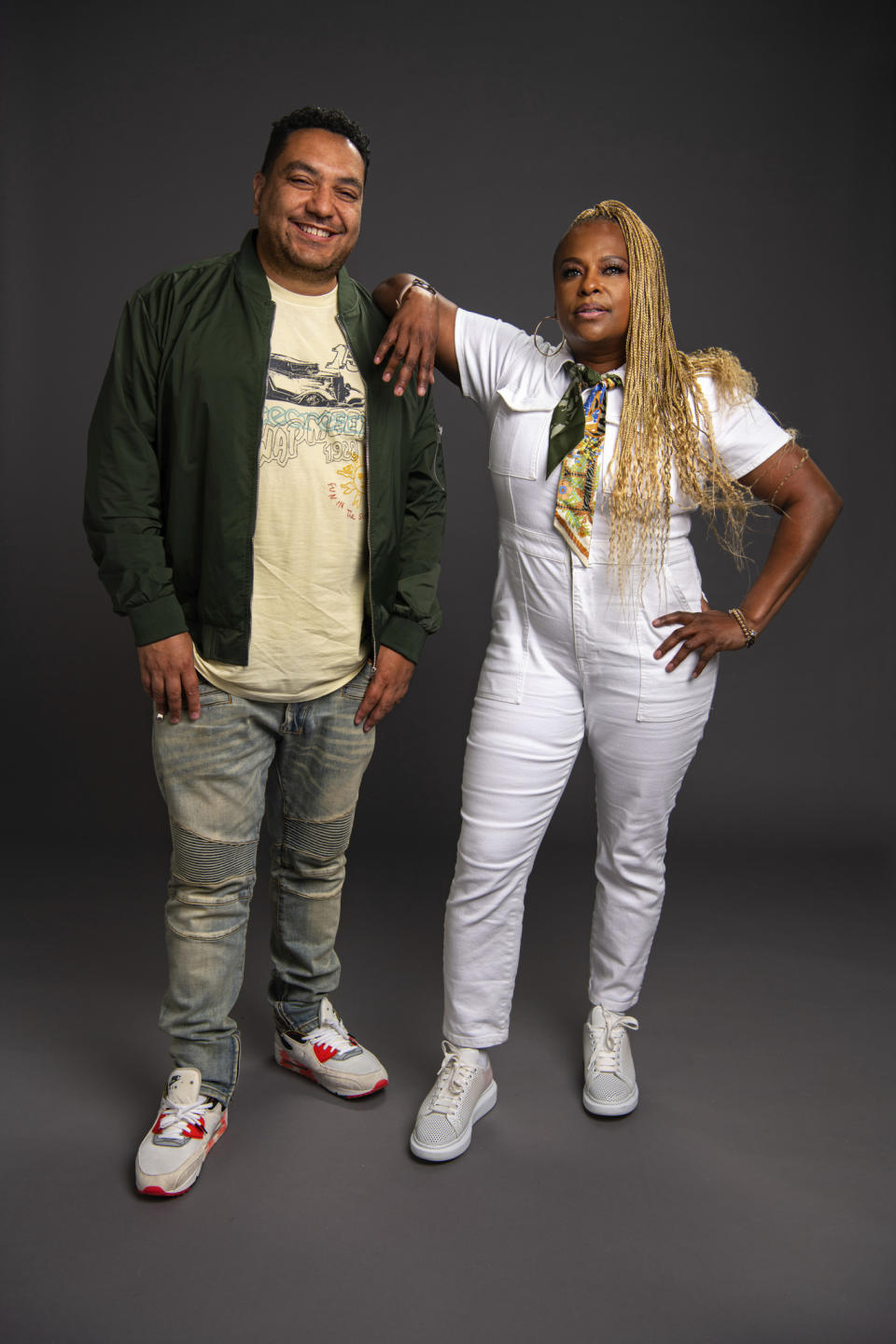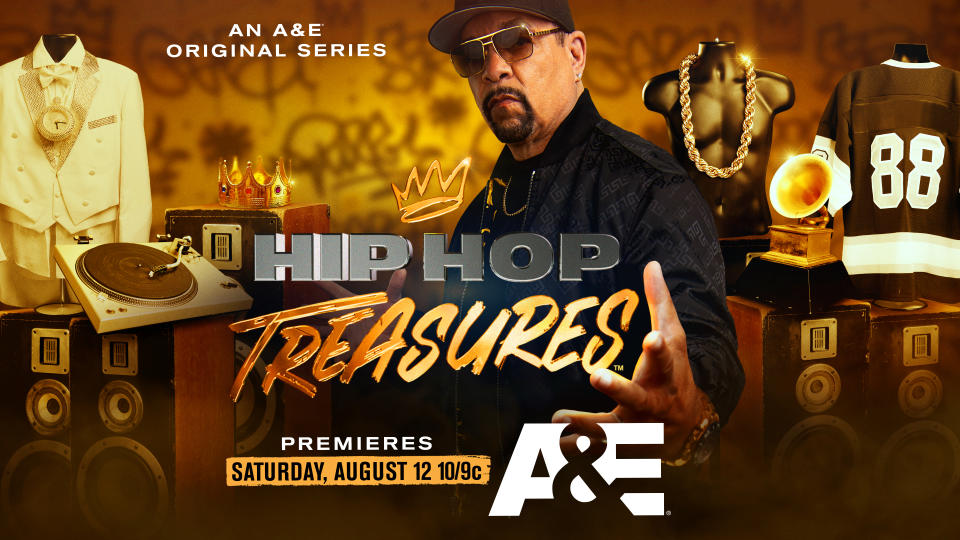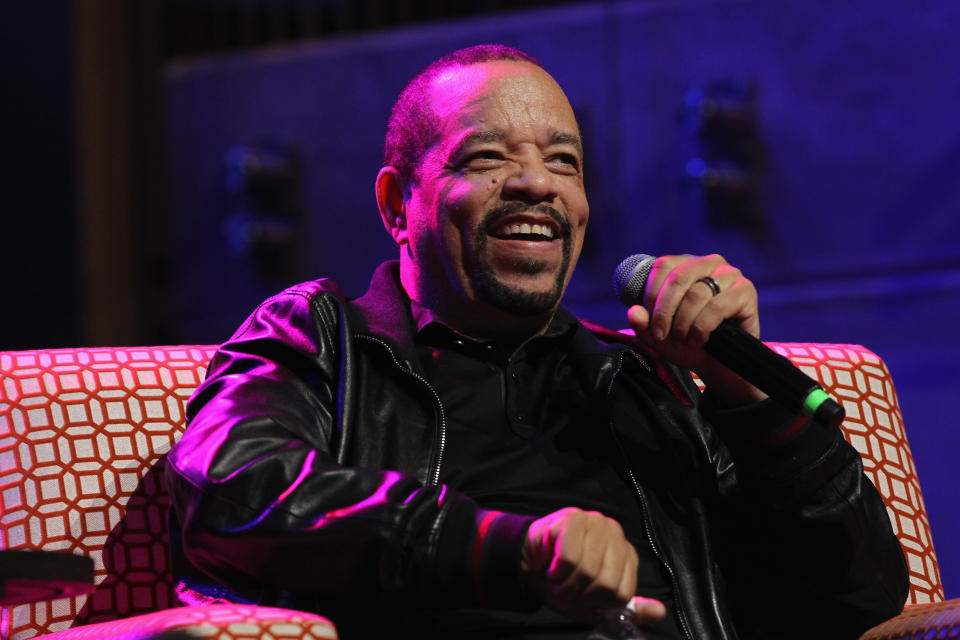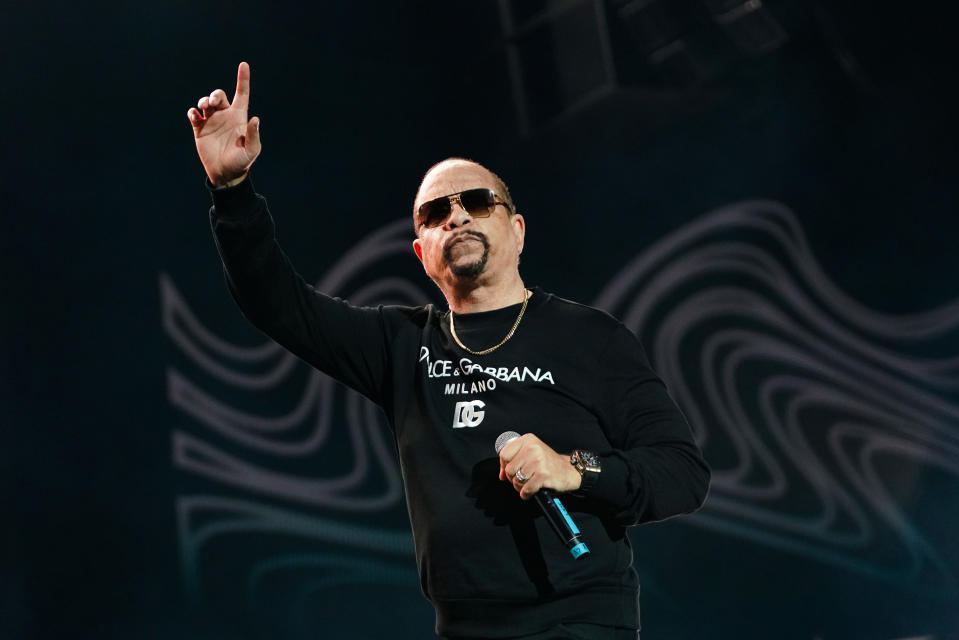Ice-T Finds Gold In ‘Hip-Hop Treasures’

Hip-Hop—a Bronx-bred movement sparked 50 years ago by the creativity of Black and brown resourcefulness and rebellion—has evolved into a globally recognized art form and culture. As trends come and go and Hip-Hop expands, some stories and relics are overshadowed, misplaced, or simply lost.
Cementing Hip-Hop’s legacy has taken work and now A&E’s Hip-Hop Treasures aims to add to the growing archives. Hosted by LL Cool J and Ice-T, the show finds the duo collecting items and stories for the Universal Hip-Hop Museum.
“I started off as a guest,” explained the 65-year-old West Coast legend over the phone.“It’s insightful because you get to learn more about people, you get to see a little bit more about the artists than you normally would. It’s educational because you’re going to learn something about the culture. And then it’s fun because we laugh a lot on the show.”

The series finds the two rap pioneers uncovering more of the culture’s history alongside field collectors Cipha Sounds and Yo-Yo, Chief Museum Curator Paradise Gray, and curator Pete Nick. The collective explores the narratives of acts including DMC (Run DMC), CeeLo Green, Flavor Flav, Fat Joe, Treach (Naughty by Nature,) Master P, Soulja Boy, and more.
Set to premiere on Aug. 12, Hip-Hop Treasures also features tributes to The Notorious B.I.G., DMX, Biz Markie, and Coolio’s last on-camera appearance before his 2022 death. VIBE spoke with Ice-T ahead of the premiere to discuss the creation of Hip-Hop Treasures and the significance of documenting the culture.
VIBE: What were some of your favorite moments to film?
Ice-T: I mean, all of it is fun because when you’re dealing with Hip-Hop treasures, you’re dealing with people from my era all the way up to new people. In retrospect, this piece we did with Coolio is big now because we didn’t know that would be his last interview. We had Yo-Yo interview him. But I spoke to him on Zoom, on the show. Coolio started out in L.A., went on tour with me at times. I mean, he’s one of my friends. It was fun working with Yo-Yo, Cipha Sounds, working with all these different people. We did an interview with Biz Markie’s wife, with some of Biz Mark’s stuff. I was fortunate enough to meet her while he was alive and then this is the first time I’d seen her after his passing. So some happy moments on the show because we’re not only showing artifacts or treasures from living rappers but also some that have passed like DMX [and] Biggie.
Are there any specific memories that you were able to recall from doing this show and being reunited with certain people or items?
It’s hard to say. It’s like everything just triggered me. We got this one show where we actually go hook up with people from Digital Underground and they break out one of these big stage props, it’s like two stories tall, that they used to bring out on stage and we would perform. It takes things 20 years to become an antique, so a lot of this stuff is from the early eras of Hip-Hop. I think it’s important for the new kids today to kind of get an understanding of what happened prior to them so that they’ll respect the culture and protect the culture and hold onto it.

Do you think shows like this and the Hip-Hop Museum itself can be a tool to help fix generational gaps?
Generation gaps are natural. It’s just what it is. And when you go 50 years, you’re dealing with maybe five generations of Hip-Hop. That’s normal because everybody’s generation’s going to do it their way, and they’re going to change it. So the music has to morph. It has to change. It’s going to have its highs, it’s going to have its lows. I mean, people were familiar with me. I didn’t really like it when it was ringtone Hip-Hop. I didn’t like that, like y’all are just singing the hook over and over and over and over and over again. Rappers want to hear you rap. Some people were like ‘Ice, you old?’ I’m like, nah I’m a rapper. (Laughs) I just want to hear you rap. Is that too much?
But I think the thing is that negative press… You’re in the press. Negative press will get 1,000 more clicks than positive press. If you say somebody got shot at the concert, everybody wants to read. If you say it was a great concert, nobody wants to read. So Hip-Hop takes a lot more negative press than positive press. We’re trying to inject something positive back into the culture.

When I did my movie, The Art of Rap, it was an attempt to put [out] something positive. When I interview people, I say, “We’re not talking about no beef, no chicks, no jewelry, nothing. No money. I want to talk about rapping. How do you do it? What makes you do it?” So this is what this show is about. It’s about what made us love it, and a lot of fun stories that went along with it. None of the bullsh*t, none of the negative stuff. That gets enough press without our help (laughs). I mean, that used to always be my beef with even VIBE or different magazines. I’m like, there’s counter-press out there that hates us. Why is our own press talking sh*t about us? That don’t make sense.
The stuff that’ll get the people going is not always positive.
I mean, honestly, when I look at The Source and I look at the magazines, it’s like a gossip magazine. It’s like, Love & Hip Hop, that’s not really Hip-Hop. We’re not even talking about the music, we’re not talking about the new album. We’re talking about the fights, the beef, the murder. I understand people are trying to make money, but it devolves the culture because when… I’ll say it like this when the white press hated us, I understood that. But when we do it to ourselves, I’m like, “Why are y’all doing it?” I didn’t get it. So that’s where Ice taps out. I’m just like, “All right.”

How do you think that artists and the industry can do better at collecting non-physical Hip-Hop archival records, such as the storytelling and the memories that are essentially lost when artists or managers or DJs, or anyone passes?
I think it’ll be a wave. When this show comes on and it does well, and parents sit their kids down and watch it, and the young kids say, “Yo, I didn’t even know that,” I think that more shows and more people will follow. […] I only do certain podcasts now because I already know some of them are just with the monkey business. They just want to try to get you to say something for clicks. I just did Drink Champs, but N.O.R.E. is very part of the culture, so he doesn’t push you in that direction. I also think that the artists are going to become more aware of that too. I think a lot of the young artists are just so happy to be famous, they don’t understand when they’re being steered down a road of destruction.
They got to watch somebody like myself or somebody like Busta [Rhymes] and say, “Okay, I really want to play this game. Don’t I want to play this game for 50 years or 60 years?” I think this show will show you there is a history. Flavor Flav is still around. Flavor Flav was just at Taylor Swift’s concert making noise. And people love him. And I think there’s a chance for the whole culture to really re-grip and say, “Hey, hey, look, whether we’re new, whether we’re young, there’s no reason Ice-T can’t love Lil Uzi. There’s no reason… Where’s the hate? Y’all getting money, we got money. What’s the problem?” And I think it’s a chance for us to bring the culture together, and that’s a good look.
More from VIBE.com
Best of VIBE.com
